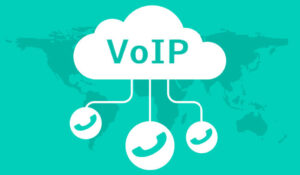Irina Kirnos of RingCentral discusses how small and mid-size businesses (SMBs) can get the most out of their VoIP phone systems.
When you’re growing a small business, your phone system can either be a huge liability or a significant asset. When your phone strategy works well, you ensure great conversations with your customers, who perceive you as a dedicated, professional entity. When your phone system functions poorly, you struggle with everything from confused customers to dropped calls.
A virtual phone system is one of the most attractive ways to upgrade your telecoms strategy today, offering the freedom and flexibility of the internet for your employees. However, just like any business strategy, it has its pros and cons.
So, let’s take a look at the good, the bad and the ugly of VoIP phone systems for SMBs.
VoIP Phone Systems: The Good
Often, the main reasons that companies switch to a hosted phone system is to cut costs. If you’re currently using a PSTN network and connecting with people around the world, you might be spending a lot of money. However, VoIP minimises costs by making use of your IP connection.
Benefits of VoIP Phone Systems in Small Business
Greater scale – On a standard phone line, only two people can speak at any given time. VoIP gives you the power to communicate with an entire team at once through conference calls sent over the internet.
Cheaper set-up – With VoIP, you can invest in a lot less hardware and software for your team. All you need is a computer, internet connection, speakers and microphone. You can choose to purchase desk phones if you want to, but the investment is entirely up to you.
Plenty of features – VoIP provides access to endless useful features, all the way from voicemail to call queuing and even recording. You can essentially build the communications strategy you need with the right provider.
Mobility – The convenience and rich features provided by a VoIP telephone system is something that your employees can take with them wherever they go. Your business number won’t be linked to a specific location, which means that your staff can continue to tap into the tools they need every day, whether they’re working from an office, on-the-go, or they’re logging in at home.
VoIP has grown increasingly popular in recent years, particularly as the end of PSTN phone lines draws closer.
What’s more, with support from a company like RingCentral, your VoIP system can go far beyond just voice. You’ll be able to enjoy the flexibility of sending video, images, and text over the internet to aid in your communication and collaboration strategies.
VoIP Phone Systems: The Bad
Often, the main issue that companies face when they consider switching to VoIP is that it can be difficult to convince employees to switch.
Some people simply don’t like change, and you may need to invest in some new training to help drive adoption. This can lead to disruption while your organisation gets used to its new phone strategy.
The VoIP Systems Limitations and How to Overcome Them
Dependency on bandwidth – You need a strong internet connection for VoIP to be effective. Otherwise, you won’t be able to achieve the right voice quality or maintain your calls.
Security – Unless your service provider can protect you with the right encryption solutions, security can be a concern. Common problems with VoIP include denial of service, call tampering, and phishing attacks.
Reliability – the quality of your conversations can depend on the quality of your internet connection, as well as the technology that’s available from your provider. If you’re located in an area without good broadband connectivity, then you may find it difficult to maintain a reliable quality of service.
Importantly, many of the downsides associated with VoIP are issues that can be addressed simply by choosing the right provider to work with.
RingCentral can deliver exceptional quality of service, failover solutions and security support to keep your system running smoothly year after year.
VoIP Phone Systems: The Ugly
Now we come to the ugliest part of switching to a virtual PBX phone system as an SMB, figuring out who to work with.
Clawing your way through endless potential VoIP carriers can be an overwhelming process at the best of times. If you’re new to VoIP and still figuring out what you need from your phone system, then it’s almost impossible to understand what you need from your provider.
Ultimately, the best thing you can do to avoid the ugly side of VoIP is to find out what you need from a phone system and work your way backward from there. For instance, think about:
Integration: Do you want your virtual phone system to work on its own, or do you need it to integrate with other crucial applications as part of a unified communications strategy. Many businesses now use multiple tools to communicate and collaborate each day. With a plan from RingCentral, you can keep your VoIP systems and other policies connected through one easy-to-use system.
Call management and customer service: As the communication world evolves, you’ll need a strategy that allows you to manage and route calls more effectively. By sending the right calls to the right places, you can improve customer experience and promote better conversations.
Compliance and security: A VoIP phone system, like any other communication strategy, needs to be secure and private. Particularly in an age where customers are taking data management more seriously than ever, make sure your provider can adhere to your security needs.
Support: Though VoIP systems aren’t nearly as complex as a standard PSTN network, problems can still arise with dropped calls and voice quality. You’ll need to consider the kind of support your provider can offer when you need help.
Finally, remember to make sure that your new VoIP provider can offer the scalability that you need to expand and grow your phone system as your business evolves. The good news is that because it’s based on the cloud, VoIP is far more open to expansion than a traditional PSTN line.
Do You Need VoIP?
The value of the VoIP market is expected to increase to $204.8 billion in less than 2 years. As companies continue to demand greater flexibility in their voice communication systems, VoIP may well be the best route forward.
If you’re looking for something that’s flexible, affordable, and more powerful than your traditional phone system, RingCentral can show you all the “good” parts of VoIP, while ensuring that you avoid the bad and the ugly.
Author: Robyn Coppell
Published On: 28th Feb 2019
Read more about - Guest Blogs, RingCentral















